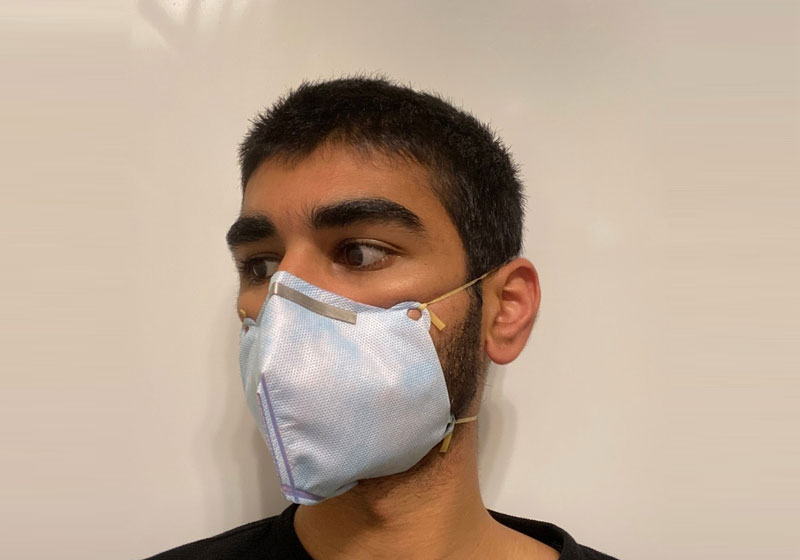The COVID-19 pandemic is impacting the availability of personal protective equipment (PPE) supplies in Baja California, and researchers with UC San Diego’s Department of Computer Science and Engineering (CSE) are developing solutions to help.
Nadir Weibel, an associate professor in the Department of Computer Science and Engineering and head of the Human-Centered and Ubiquitous Computing Lab, is collaborating with university colleagues, government and industry to develop PPE solutions and to transport supplies, like masks and face shields, to hospitals in Baja.
So far, the team has produced and tested 3,000 face shields and 1,100 masks. The protocols to make this equipment have been published on Earth2.0’s COVID-19 Rapid Response, an online portal that supports information sharing, rapid science and innovative solutions curated by UC San Diego’s Weibel, Eliah Aronoff-Spencer, Linda Hill, and many other faculty and students.

Scaling Up Production and Distribution
After engineering an initial batch of masks and face masks, Weibel and Earth 2.0 partner Linda Hill, a clinical professor in UC San Diego’s Department of Family Medicine and Public Health, began developing a PPE pipeline to Mexico, working closely with the San Diego Mayor’s Office of International Affairs, the State of Baja Economic Development Authority and others.
Hospitals in Baja California aren’t the only group that could benefit. “There might be others who need it, like populations that typically have less access to this kind of protection: refugees, homeless people, small community clinics, nursing homes,” Weibel pointed out.
The group’s next goal is to partner with industry in Baja to scale up their efforts and fully implement their project. They are supplying their instructions and specifications to create the safe and effective PPE in both English and Spanish, so local manufacturers can lend a hand.
“We will act as technical know-how liaisons for potential industry partners and manufacturers in Baja who are interested in producing these supplies at scale,” Weibel said.
Developing DIY Solutions
Weibel and colleagues had been looking for ways to support COVID-19 care and prevention since the earliest days of the pandemic.
“We started to research existing solutions,” said Weibel. “A physician at the University of Florida had designed a mask using surgical wrap, a material that keeps surgical equipment sterile, and that solution really intrigued us.”
While surgical wrap protects instruments from viruses and other potential contaminants and is relatively plentiful, making it great DIY mask material, the initial design was too labor-intensive to scale up.
Working with UC San Diego’s Simulation Training Center and others, Weibel and his team began refining it. The researchers, including computer science PhD student Tommy Sharkey and undergraduate Shiv Patel, iterated several mask designs, using surgical wrap and other easy-to-find materials.
Developing these designs was just the first step – they also had to be validated. Weibel’s team worked closely with infectious disease, emergency room and other UC San Diego physicians to get feedback. They’ve also been testing prototypes on a PortaCount, a device that measures the numbers of particles going through the mask.
“We have been able to produce a surgical mask that has better protection than any other DIY masks out there,” said Weibel.
Weibel’s group has also been working with Qualcomm Institute’s Prototyping Lab and Scripps Institution of Oceanography’s CAICE Lab to produce mask components. The UC San Diego chapter of Delta Epsilon Mu, led by Ann Nguyen, an undergraduate research assistant in the Human-Centered and Ubiquitous Computing Lab, is helping assemble them. CSE has provided much-needed funding.